English
Ask us questions! We’re here to help.
Department Chair
Did you know that English majors:
- Pursue successful careers in a variety of areas including law, medicine, business and education?
- Score competitively on the GRE, LSAT, MCAT exams and earn higher scores on the GMAT exams than undergraduate business majors?
- Earn higher mid-career salaries than many so-called “practical” majors, including business administration, public relations, nursing, biology and psychology?
- Stand apart from the crowd with strong writing skills, a trait that 97 percent of Fortune 1,000 executives rated as absolutely essential or very important?
Discover New Worlds: English Majors and Minors Enjoy Many Paths to Success
Whether you major or minor in English at Detroit Mercy, you will gain essential skills to thrive in your career and life. Our courses are taught by award-winning faculty members who are active scholars, authors, and filmmakers. Our students are engaged, passionate, and collaborative.
Your journey with us will transport you to other worlds and teach you to empathize with diverse perspectives. You will graduate a strong and confident reader, writer, thinker and speaker, ready to continue your journey in graduate or professional school or pursue a career in a broad range of competitive fields.
Three Exciting Concentrations
Literature
Discover great literature through conversation and writing. Learn about yourself and the world; develop as a scholar and critic; collaborate with active scholars in the field.
Professional Writing
Discover your professional voice through research, writing for print and digital formats and oral presentations. Collaborate with professionals in your field and build your resume.
Creative Writing
Discover your voice as you work alongside peers and published authors in genres including poetry, fiction and screenwriting. Hone your craft through writing and revision.
View Student Testimonials
Undergraduate Programs
-
Major - English
Degree: Bachelor of Arts
Major: English
Concentrations: Literature, Creative Writing and Professional WritingUniversity of Detroit Mercy's Department of English is home to three undergraduate major concentrations--literature, creative writing, and professional writing. Majors work closely with a faculty advisor to pick courses and plan for their career.
To obtain this undergraduate degree, the student must fulfill the requirements of the University core curriculum, the requirements for the 36-credit-hour program major and have completed a minimum of 120 credit hours. In their final semester English majors and minors will submit a portfolio of their work that demonstrates their academic growth within the department.View English Department program outcomes.
Download Sample Curriculum (pdf) ▶ Undergraduate Catalog Information ▶
-
Accelerated 6-Year Law Scholars Program (3+3)
Are you ready to accelerate your law career? Detroit Mercy’s innovative Accelerated 6-Year Law Scholars Program enables you to earn both a bachelor's degree and a Juris Doctor degree in only six years rather than the traditional seven. English is an approved major for this program. Students must meet program entrance criteria.
- Earn a law degree in less time.
- Your space in the Detroit Mercy School of Law is reserved.
- Receive exclusive access to "law only" events such as the Lunch with a Lawyer series.
- Meet and network with judges and other legal professionals.
-
Creative Writing Minor
Find your voice and develop your craft as a poet, novelist, essayist or screenwriter. The creative writing minor is a minimum 18-credit-hour (six courses) program designed to provide students the tools for a deeper understanding of how to use language and to express the intricacies of the human experience. The creative writing minor gives students the opportunity to undertake creative writing projects—especially the writing of poetry, fiction, screenplays, and non-fiction—which emphasize the process of writing as well as the end product. In their classes, students read and study a variety of key published works, write from prompts and assignments and learn techniques for harnessing their own creative resources. The peer workshop, or group critique of student writing, is the cornerstone of growth as a writer.
View English Department program outcomes and final portfolio instructions.
-
Literature Minor
Enhance your writing skills and set yourself apart from the crowd. The literature minor is a minimum 18-credit-hour (six courses) program designed to provide students with a critical understanding of a range of literary periods, genres, authors and literary theory. This minor complements a range of majors and is a good choice for any student who has an interest in reading, writing about and discussing literature. The literature minor is particularly valuable for students' professional development because it helps develop critical thinking and writing skills, historical and cultural awareness, and appreciation of the diversity of human experience and written expression over the ages.
View English Department program outcomes and final portfolio instructions.
-
Professional Writing Minor
Hone your writing skills for success on the job market and in your career. The professional writing minor is an 18-credit-hour (six courses) program designed to provide students with the broad range of tools necessary for writing in their profession. The professional writing minor helps students stand apart from their peers by enhancing writing and presentation skills directly applicable to diverse workplace environments. The minor complements all majors and is tailored to help students succeed in achieving their individual professional goals.
View English Department program outcomes and final portfolio instructions.
More about the English Department
-
English Department Program Outcomes
Upon completion of their degree requirements all English majors and minors will be able to:
- Deploy close textual analysis to create original interpretations of literary texts.
- Identify the formal characteristics and conventions of literary and rhetorical genres.
- Analyze the complex relationships between artistic texts and the diverse historical and cultural contexts in which they are produced.
- Apply theoretical/interpretive approaches to literary and rhetorical texts.
- Assess audience needs and expectations for the purpose of effective communication.
Majors with a Literature concentration and Literature minors will be able to:
Produce original scholarly texts that synthesize and engage critically with scholarship in the field of literary studies. (6L)
Majors with a Creative Writing concentration and Creative Writing minors will be able to:
Produce creative texts that demonstrate originality of thought, inventive use of language, and skills in using observation, memory, and imagination. (6CW)
Majors with a Professional Writing concentration and Professional Writing minors will be able to:
Produce texts for oral, print, and electronic media that are effective for professional and workplace settings. (6PW)
-
Careers
Careers
An English major/minor prepares you with essential skills for your chosen career path. English does not prepare you for one career; it prepares you for a lifetime of professional development.
Broadcasting/Television/Film
Business
Communications
Consulting
Copywriting
Creative Writing
Education/Teaching
Freelance Writing
Grant Writing
Higher Education Administration
Human Resources
Journalism
Law
Library Science/Information Science
Magazine Writing
Marketing/Advertising
Non-Profit Administration
Psychology/Therapy
Public Policy/Government
Public Relations
Public Service
Publishing/Editing
Research Analysis
Science Writing
Scriptwriting
Social Work
Speech Writing
Sports Writing
Technical Writing
Website Development
Career skills an English major/minor fosters:
Assessing an audience and crafting a message for maximum effect;
Creating persuasive messages, influencing and persuading;
Perceiving the world from multiple points of view;
Reading critically; analyzing texts and information;
Thinking out of the box;
Understanding and managing complex information;
Working independently; working well with others; and
Writing and speaking with confidence, clarity and sophistication.Graduate and professional school
An undergraduate degree in English is an excellent foundation for a variety of graduate and professional programs. English majors score competitively on the GRE, LSAT, MCAT, and GMAT exams. English alumni successfully pursue careers in law, medicine, business, education, and more.
Why English majors rock their careers!
Humanities as Essential Services
Inside Higher Ed, May 21, 2020The surprising thing Google learned about its employees — and what it means for today’s students
Washington Post, Dec. 20, 2017Surprise: Humanities Degrees Provide a Great Return on Investment,”
Forbes, Nov. 20, 2014.“The Best Argument for Studying English? The Employment Numbers,”
The Atlantic, Jun. 25, 2013.“That ‘Useless’ Liberal Arts Degree Has Become Tech’s Hottest Ticket,”
Forbes, Jun. 29, 2015.“A Top Medical School Revamps Requirements To Lure English Majors,”
May 27, 2015."A Liberal Arts Degree Can Be More Beneficial than Most People Think,"
March 28, 2016.“Logitech CEO: ‘I Love Hiring English Majors,’” Business Insider, Jun. 20, 2013.
“Employers and Public Favor Graduates Who Can Communicate, Survey Finds,”
The Chronicle of Higher Education, Sep. 18, 2013.“What Is Knowledge Worth? A Liberal Arts Education Has Enduring Value,”
Pittsburgh Post-Gazette, Feb. 17, 2013.“A Liberal Arts Foundation for Any Career,”
New York Times, Mar. 24, 2013.“Why I Hire English Majors,”
Huffington Post, Jun. 23, 2013.“Open Minds, Open Arms, Open Hearts,”
(by Giulia Pink, University of Detroit Mercy English Alumna), Conversations on Jesuit Higher Education, March 2015.“Reading Literature Makes Us Smarter and Nicer,”
Time, June 2013.Download this flyer for great tips on professionalizing your English degree.
-
What Our Students Are Saying
Detroit Mercy English courses are taught by award-winning faculty members, who are passionate teachers and active scholars and authors.
Michael Barry, Ph.D., Professor of English
What His Students Are Saying:
- “I LOVE Michael Barry. He made me fall back in love with writing. He was so encouraging and helpful.”
- “It’s clear that he loves the literature and thinks about it often. He is extremely well read and poses questions that take a while to process, which is infinitely more interesting than a simple question with a simple answer. He makes me want to read everything.”
- “Dr. Barry is always thinking of new ways to make the material more interesting. For example, he twice prepared dishes that were part of the stories we read in class. I definitely appreciate Dr. Barry’s effort!”
Elena Garcia, Ph.D., Assistant Professor and Director of the First-Year Writing Program
What Her Students Are Saying:
- "This class has taught me a lot. My future didn't have a plan but now it does to help the world. The project we wrote and planned, I will be using in the future."
- "I appreciated all of the weekly reflections we wrote. They have made it a lot easier for me to write now, and I can thank this class for it. Throughout high school, I had teachers who did not care, and they didn't teach us much about writing. I learned here."
- "What most impacted my learning was the amazing flexibility my teacher gave us when it came to being creative."
Mary-Catherine Harrison, Ph.D., Department Chair and Associate Professor of EnglishWhat Her Students Are Saying:
- “Professor Harrison is an amazing professor. She is energetic about the material she teaches, challenges her students, and is always available if needed. I would encourage any student to take a course with her.”
- “Professor Harrison’s contagious energy helps to make studying poetry engaging and informative.”
- “Not only does Dr. Harrison excite students about learning, but she sets the academic standard in every course she teaches. She utilizes every moment of class time to get as much as possible out of her students, and gives them much more than anyone could imagine a professor could dedicate in return.”
Amanda Hiber, M.F.A., Senior LecturerWhat Her Students Are Saying:
- “I learned so much from Prof. Hiber. I will definitely use all of the writing tools she taught me for the rest of my life.”
- “I started the class nervous about my writing skills. After the class was over, I felt more confident in my writing. Prof. Hiber had a great balance between leading her students in the right direction and letting us write on our own.”
- “Prof. Hiber was very helpful and was very easy to meet with outside of class. I’ve never been good at English but she made it easy for me to understand. I learned a great deal from her and am so thankful.”
Heather Hill, Ph.D., Professor of EnglishWhat Her Students Are Saying:
- “I’ve always loved books, but Prof. Hill taught me how to truly respect the corpus and meaning of the works we learned. She opened up the doors of thought and reasoning that has helped me in every class since.”
- “Dr. Hill taught me, through interactive lectures and productive group work, that no facet of our society should go unexamined. She not only taught about inspirational figures, but was an inspiration to her own students.”
- “Dr. Hill wants her students to succeed. She makes herself extremely available, working with each student personally and pushing them to produce their best work. She is very kind, tough (in the best way possible), and demands that students challenge their every-day perceptions to seek out the deeper meaning in anything they experience.”
What His Students Are Saying:
Stephen Pasqualina, Ph.D., Assistant Professor and Director of the University Honors Program- “Professor Pasqualina is an absolute gem. The structure of this class encourages creative and critical thinking and exposes students to diverse voices and theories relevant to modern life and literature.”
- “This is a class that anyone who loves English and literary studies absolutely should take. Looking back on it, I'm still overwhelmed by the vastness of the course and amazed by how it all connects. I've been talking about the course to my peers and family members. I can't express how highly I recommend this course to everyone.”
- “Not only was he a phenomenal teacher, but he also always encouraged us to share our opinions with both him and our peers. I felt comfortable and always welcomed to voice my opinion in the class.”
Nick Rombes, Ph.D., Professor of EnglishWhat His Students Are Saying:
- “Awesome professor. I felt as though he truly prized what students said which made it easy to participate and present in class.”
- “I wasn't really interested in the film-making process before I took Prof. Rombes' class. Now I find myself watching films and pointing out different techniques that I never would have noticed before. “
- “Prof. Rombes was great and made the class thoroughly interesting. He was extremely educated in the film subject and he was passionate about film. This passion was easily passed on to his students. “
Rosemary Weatherston, Ph.D., Associate Professor of EnglishWhat Her Students Are Saying:
- “Dr. Weatherson makes sure she is available for her students when they need help and goes out of her way to help them. I've never had a professor that shows such passion for the subject they teach and true concern to see her students succeed.”
- “Dr. Weatherston’s understanding of the text and interpretation of writing is exceptional. She made it available for us to apply the skills that she holds to our own personal work. I enjoyed this course very much and Dr. Weatherston was more than willing to work with students and help them achieve their greatest potential.”
- “Hands down, one of the best professors and teachers I have ever have. She is so passionate about literature and fiction. I truly enjoyed having her as a teacher.”
-
[sic]: Detroit Mercy's Student Arts Journal
[sic]
Student Arts JournalMany of our English majors and minors have their creative work featured in [sic], the University's student arts journal. Established in 1992, [sic] is published annually by the English Department’s Dudley Randall Center for Print Culture. The publication features the poetry, fiction, prose, photography and fine art of Detroit Mercy's exceptionally creative student body. The journal is edited and designed by undergraduate students and publishes annually.
For more information, contact Rosemary Weatherston, associate professor of English: weatherr@udmercy.edu.
Click the link to read more about [sic].
-
Dudley Randall Center for Print Culture
The Dudley Randal Center for Print Culture connects academic, student and community writers through its literary events and creative publishing projects. Named after Dudley Randall, the late poet, publisher, and University of Detroit Mercy librarian and poet-in-residence, the Center continues Randall’s vision of the written word as a living art form intimately connected to community and to self-determination. Read more about the Dudley Randall Center for Print Culture or contact Rosemary Weatherston, associate professor of English, for more information at weatherr@udmercy.edu.
-
Howard Walsh Memorial Award
The Howard Walsh Memorial Award is presented each year to the English major who has demonstrated the greatest proficiency in English language and literature; the award was founded in 1927 by Annie Doheny Walsh.
- 2025 Myka Davis
- 2024 Erin Letourneau
- 2023 Mahnaz Seddiqi
- 2022 Hannah Alexis
-
2021 Bek Hirschmann and Nurzahan Rahman
-
2020 Mary Kate McNally
-
2019 Hannah Tillman
-
2018 Lauren Webley
-
2017 Nicole West
-
2016 Stephanie Hilliard
-
2015 Giulia Pink
-
2014 Mohammad-Yasser Ibrahim
-
2013 Christa Hoen
-
2012 Susan Kalkstein and Chelsea Smialek
-
2011 Constantine Demontfort
-
2010 Noel Rivard
-
2009 Tanya Davidson
-
2008 Megan Misczak
-
John C. Freeman Scholarship
Founded in 2022, the John C. Freeman Scholarship honors the talents and legacy of Dr. Freeman, an inspirational professor and scholar who impacted thousands of students across the University of Detroit Mercy for more than 33 years. The scholarship supports a deserving English major and Literature, Professional Writing, or Creative Writing minor in their sophomore or junior year.
- 2025 English major recipient: Allena Williams
- 2025 English minor recipient: Jenna Saker
- 2024 English major recipient: Asha George
- 2024 English minor recipient: Haley Gavigan
- 2023 English major recipient: Hannah Cunningham
- 2023 English minor recipient: Deja Spruill
- 2022 English major recipient: Erin Letourneau
- 2022 English minor recipient: Sam Strader
-
Student Creative Writing Chapbooks

Almost Awake. Almost Poets. [PDF]. A creative writing chapbook from Detroit Mercy’s fall 2025 Intermediate Creative Writing course, taught by Poet-in-Residence Stacy Gnall and designed by Melissa Converse, English major.

Mostly Circular [PDF]. A creative writing chapbook from Detroit Mercy’s fall 2024 Intermediate Creative Writing course, taught by Poet-in-Residence Stacy Gnall
9:55: Circle of Scribes [PDF]. A creative writing chapbook from Detroit Mercy’s fall 2023 Introduction to Creative Writing course, taught by Poet-in-Residence Stacy Gnall and designed by Erin Letourneau, English major.

Inspired by the Dead(line) [PDF]. A poetry chapbook from Detroit Mercy’s winter 2023 Intermediate Creative Writing class, taught by poet-in-residence Stacy Gnall and designed by Erin Letourneau, English major.

Take a Second with This [PDF]. A poetry chapbook from Detroit Mercy’s fall 2022 Introduction to Creative Writing class, taught by poet-in-residence Stacy Gnall and designed by Erin Letourneau, English major.

Moving [PDF]. A poetry chapbook from Detroit Mercy’s winter 2022 Intermediate Creative Writing class, taught by Prof. Nick Rombes and designed by Erin Letourneau, English major. Dedicated to Adia Palmer.

A Few Frigid Pigeons: A Poetry Chapbook [PDF]. A poetry chapbook from Detroit Mercy’s winter 2021 Intro to Creative Writing class, taught by Nick Rombes and designed by Santana Scott ‘20, creative writing minor. This chapbook was enclosed in the university’s 2021 time capsule.

Voices Through the Flickering Pixels [PDF]. A pandemic chapbook from Detroit Mercy’s fall 2020 Intro to Creative Writing class, taught by Sean Madigan Hoen and designed by Santana Scott ‘20, creative writing minor.
Alumni of Detroit Mercy's English Program have gone on to pursue exciting and rewarding careers in law, education, business, marketing, politics and writing.
Read what some of our recent alumni say about what they gained through their Detroit Mercy degree:
Riham Alwan '07, resident physician
Henry Ford Medical Center
My pursuit of a dual major in English and biochemistry engaged both my analytical, regimented self and allowed my mind unlimited creative explorations. I cherish the memories of my undergraduate experience, and I would not be the woman I am today had it not been for Detroit Mercy.
Deonte Osayande '13, poet,
adjunct professor
Wayne County Community College
I am grateful that I had professors who invested in me during class hours, during office hours, and even off the clock to help me develop as a writer and as a human being. It turned what I thought I knew about English and Literature all the way around.
Michelle Styczynski '12
research advocate
Consumer Federation of America
I became an English major because I was deeply inspired by the conversations that took place in my English courses; now I receive praise from supervisors who say that my research and writing are thorough, clear, and convincing.
Jasmine Davis '14,
assisting prosecuting attorney, Ingham County Prosecutor’s Office
Having a concentration in literature forced me to become an active reader with a critical eye for detail; I have learned how to approach texts from a critical standpoint and to analyze texts in depth.
Giulia Pink '15
student services, EF Education First
I chose to major in English because I loved the art of the written word. Through my English courses, I not only honed my writing and analytical reading skills, but also became a better presenter, creator, and human. Literature offers a powerful opportunity to practice empathy by connecting with the characters and fellow classmates in discussions. I had so many eye-opening debates in UDM's classrooms that changed my life and how I see the world!
Joe Gifford '15
police officer, City of Detroit
In a world with ever-evolving needs and technologies, the skills gained from an English degree remain constant. I am confident that my writing, communication, and presentation skills will serve me well into the future, in any workplace or community.
Hannah Tillman '19, technical writer,
H2O.ai
This department was-is-my home. None of what you encounter here is rote memorization: each of these professors is invested in making sure you learn actual marketable and holistic skills. I learned critical analysis, effective communication, trained my sense of empathy-you learn to be a person and to recognize innate humanity in all people. Stories (and the interconnectedness they bring) are the cure to apathy, and you learn that here.
Blake Armstrong '16, biology major (pre-med), literature minor
Mianna Gonczar '18, biology major, literature minor
Starting at University of Detroit Mercy as a biology major, I was overwhelmed with the amount of science courses ahead of me. After choosing my literature minor, I have the opportunity to take classes that reflect and build my interests; the courses allow for a creative outlet in an otherwise rigid class-load. The education I've received from my literature minor has allowed me to expand my views on the world, the people around me, and who I am.
Maeve Nichols '18, 5-year BS/MS information assurance, literature minor
Declaring a minor in literature has been one of the best decisions I’ve made in my academic career. As a cybersecurity major, I’m required to take a large amount of technical, computer based courses for my degree. Having a minor in literature has enabled me to diversify my education by taking courses that promote creativity and analytical thinking. Additionally, I have gained invaluable skills in reading, writing, and communication that give me an edge in any career path, including computers.
Zoey Oatis '19, '21, health services administration major, MS information assurance, professional writing minor
Some people are strong speakers, others are strong writers. Studying professional writing has allowed me to become both. The skills that I have gained from the English department have sharpened my ability to communicate fluently both verbally and on paper. The many professors that I have encountered have done an exceptional job challenging my critical thinking skills and my ability to decipher texts through analysis.
Nina Carlson '21, performing arts major, creative writing minor
Being a successful theatre worker requires an artistic insight for working and thinking creatively. Where theatre is the art of looking at ourselves, creative writing is the art of creating for ourselves—whether that be a fantasy world, or a change in our current society.
Mike Jaafar, biology major, creative writing minor
Pursuing a minor in creative writing was unheard of to many of my friends in science, but I felt right at home. The English department has motivated me to become an original thinker when it comes to writing, and even recognize the voices of others we tend to ignore. The skills I have gained are invaluable, and I look forward to continue using them in my career and everyday life.
Rachel Wozniak '16, criminal justice major, literature minor
The English Department at [Detroit Mercy] has expanded my horizons of reading exponentially. My professors have provided me with the tools, information, and passion that I needed to branch out of my comfort zone. The classes required for my minor have taught me just how important literature is in everyday life, and how much of an impact it has on the world around me. My reading and writing skills have also improved significantly thanks to the careful eye of professors in small classes coaching me every step of the way. I am forever grateful for the lessons learned while completing my Literature minor at [Detroit Mercy].
Emma Hagel '20, civil engineering major, literature and philosophy minors
My minors in English and Philosophy have helped me grow intellectually in my time at Detroit Mercy and have given me a creative outlet while taking my Civil Engineering classes. In my career, my unique background has given me an advantage over other applicants for engineering positions because I am able to write eloquently and persuasively-- both are skills I have had opportunities to improve on in my English classes at Detroit Mercy.
Marina E. Keyzer '21, business major, professional writing minor
My experience in this minor was nothing but positive: From the professional writing course to the technical writing course and everything in between. For many of the classes my professor was Dr. Streit who helped me create content for the courses that were not your typical written papers; instruction and definition sets, portfolios, resumés, and cover letters were some of the things I learned how to create and perfect for my professional life. I’ve even used resumes Dr. Streit has edited for me and subsequently got the job! I know that this minor will help me tremendously in my future career and I want to thank all of my professors and advisors that have helped me complete it.
Mehar Soni '22, chemistry major, literature minor
Full-Time Faculty

Michael G. Barry
Professor of English
313-993-1050
barrymg@udmercy.edu
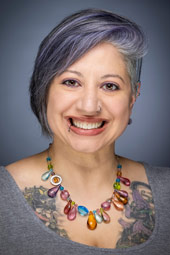
Elena Garcia
Writing Program Director
Assistant Professor of English
313-993-1080
garciaeg@udmercy.edu
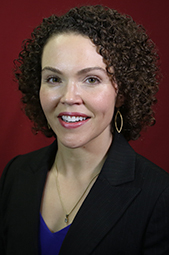
Mary-Catherine Harrison
Professor of English
*
Department Chair
313-993-1081
mc.harrison@udmercy.edu
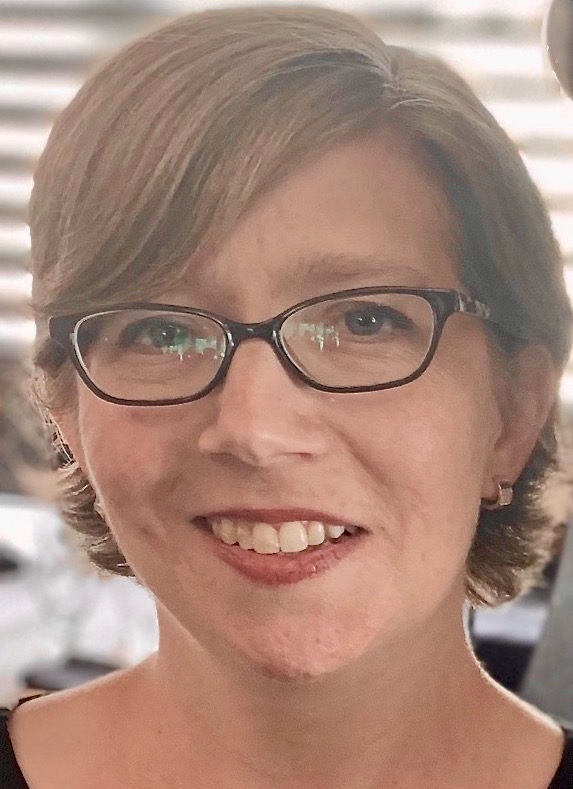
Amanda Hiber
Senior Lecturer, Department of English
Co-Director, Women's and Gender Studies Program
313-993-2011
hiberja@udmercy.edu
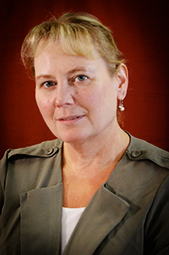
Heather L. Hill
Professor of English
313-993-1461
hillhl2@udmercy.edu

Stephen Pasqualina
Assistant Professor of English
Director, University Honors Program
313-993-2008
pasquasg@udmercy.edu
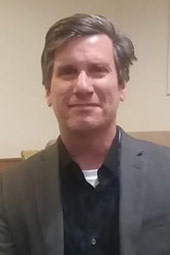
Nick Rombes
Professor of English
313-993-1085
rombesnd@udmercy.edu
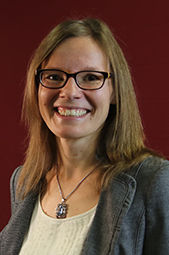
Sigrid Streit
Associate Professor of English
313-993-1082
streitsi@udmercy.edu
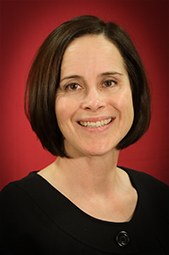
Rosemary I. Weatherston
Associate Professor of English
Director of the Dudley Randall Center for Print Culture
Director of University of Detroit Mercy Press
Co-Director of Women’s and Gender Studies Program
313-993-1083
weatherr@udmercy.edu
Adjunct Faculty
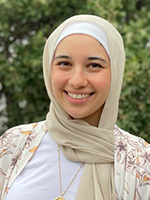
Alamia Annous
Adjunct Instructor
aanous@udmercy.edu
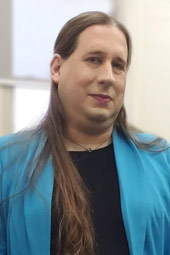
Molly Barlow
Senior Adjunct Instructor
Program Coordinator, University Honors Program
313-993-2008
barlowpe@udmercy.edu
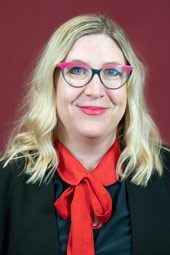
Erin Bell
Writing Center Director
Adjunct Instructor
313-993-1289
bellee@udmercy.edu
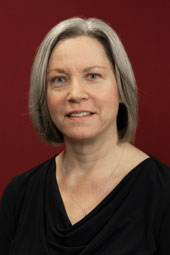
Celeste Flores
Senior Adjunct Instructor
florescm1@udmercy.edu
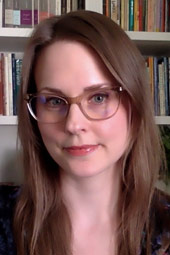
Stacy Gnall
Poet-in-Residence and Adjunct Instructor
gnallsc@udmercy.edu
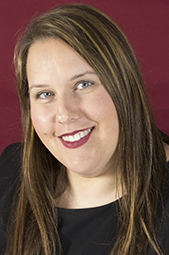
Kathleen Jaczynski
Senior Adjunct Instructor
jaczyskm@udmercy.edu

Caleb Lalinsky
Instructor
lalinscm@udmercy.edu
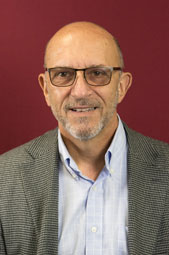
Michael Lauchlan
Senior Adjunct Instructor
lauchlmf@udmercy.edu

Elizabeth Lulis
Senior Adjunct Instructor
lulisea@udmercy.edu
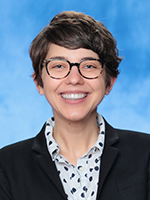
Megan Novell
Executive Director, Office of Equal Opportunity
Senior Adjunct Instructor
313-993-1802
novellme@udmercy.edu
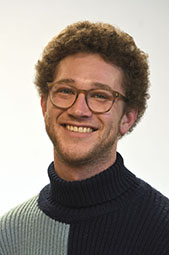
Isaac Pickell
Adjunct Instructor
pickelis@udmercy.edu
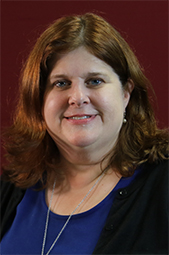
Susan Trudeau
Senior Adjunct Instructor
trudeasm@udmercy.edu




